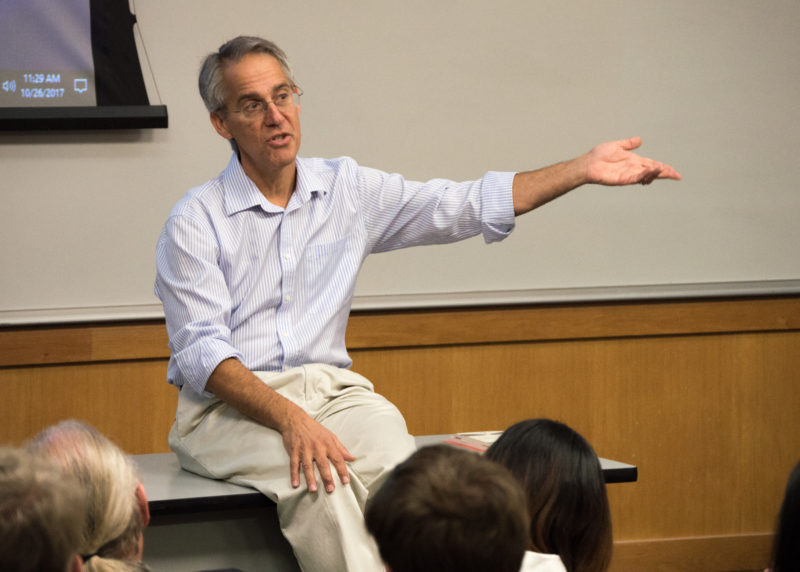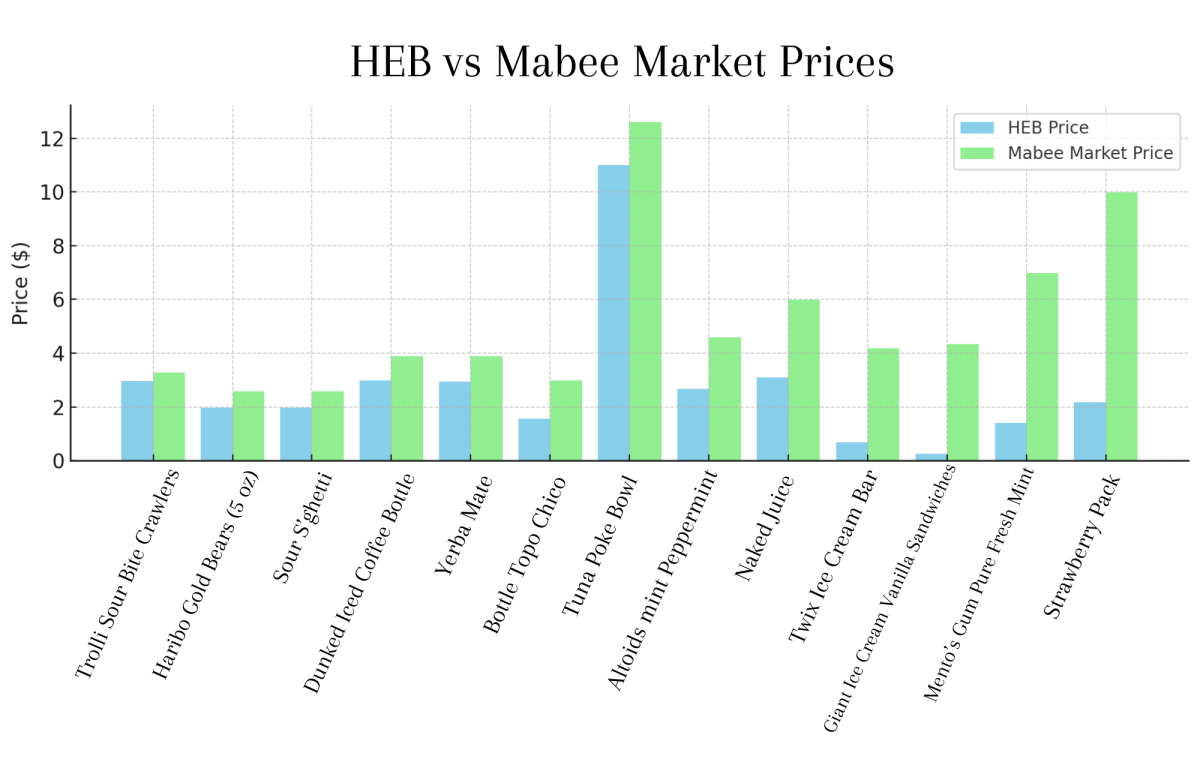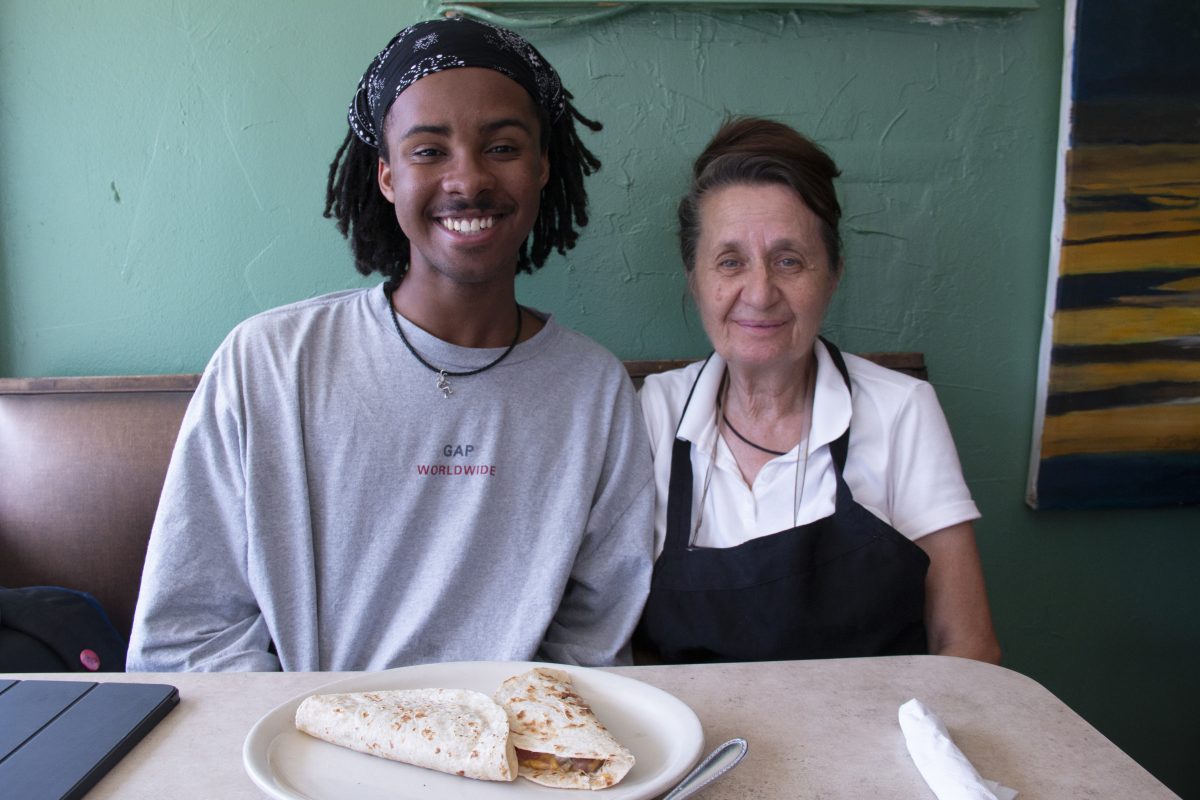Young student protesters have occupied the business district of Hong Kong various times in the last couple of years in a battle for democracy. Given this situation, Gina Tam, assistant professor of history, brought an expert in the historical legacy of China’s youth protests to speak at Trinity. Jeffrey Wasserstrom, chancellor’s professor of history at the University of California at Irvine, came to Trinity on Thursday, Oct. 26, to give a lecture on Asian youth political movements titled “Taking it to the Streets: Protests in Shanghai’s Past and Hong Kong’s Present.”
“Professor Wasserstrom has really made his mark on the scholarly world by making China accessible to a non-scholarly audience,” Tam said.
Because of the timeliness of this topic, understanding Asia and its political culture is extremely important and relevant to Trinity students.
“Asia is a big part of the world,” Tam said. “Of the seven billion people in the world, 4.4 billion of them live in Asia, and we think it’s important to give students an introduction to that and we do that by making it relevant to their own lives. If we tie it around youth and look at that thematically, it allows students to look at their own experiences and discuss cultural and historical differences.”
The lecture also ties in with the First-Year Experience course, Being Young in Asia. In the course, students have been studying China, Japan and South Korea and the misconceptions Westerners have about these countries.
“I expect to be enlightened in that I will gain a better sense of political life historically and in the present,” said Peyton Tvrdy, a first-year in the course. “I hope to understand better the thought process of those students who participate politically, what their goals are and how they plan to change China. I feel [Wasserstrom] would be a wonderful teacher for this purpose.”
Wasserstrom centered the lecture on the recent protests against the mainland regime in Hong Kong, his experiences when he travelled to see the protests and the concept of imperfect analogies, which are comparisons between different events in history and parts of the world.
“The important part is going in knowing that the analogy is not perfect “¦ [but] it might allow you to see interesting things,” Wasserstrom said.
He discussed his thoughts when visiting Shanghai in 1986 and Hong Kong in 2014 and 2016 during protests. He explained how social movements give the sense that history repeats itself.
“In many ways, to have a political flashback in Hong Kong in the 21st century to China in the 20th century, and even the earlier parts of the 20th century, was a very disorienting and strange experience, and suggests some curious things about change over time,” Wasserstrom said.
Wasserstrom read a few passages from his publications about deja vu, doppelgà¤ngers and twined experiences that occurred to him in various of his visits to Asia.
“There were different ways in which different protesters borrow selectively from things going around the world. That is another thing that gave me Shanghai flashbacks,” Wasserstrom said.
He accompanied the lecture with various photographic examples of the pacifist occupation of the business district in order to clarify misconceptions about the political state of Hong Kong. The protesters in China, are young, intellectual people who know they have the obligation to get involved in politics. He described the students’ efforts to keep up with schoolwork while trying to get involved in politics; they moved desks to the city center and created silent areas to study and show that protesting was a part of everyday life.
“Students were seen in Hong Kong the way they were seen in Shanghai decades before: As the flower of the nation, the flower of the community, the people who should have say in how a place was govern,” Wasserstrom said, “Unlike in America, where we tend to say, “˜What are students doing here involved in politics?,’ in China they tend to say students are young intellectuals [who] are to be protected for the future of the nation.”
In fact, Wasserstrom ended his presentation with the latest news about Joshua Wong’s release on bail on Oct. 24 “” two days before Wasserstrom’s lecture. Wong is a 21-year-old pro-democracy activist and the face of the Umbrella Movement, a sit-in street protest that occurred in 2014, who got arrested in August of 2017.
Following the lecture, Wasserstrom addressed questions from the audience. In response to a student’s question about the influence of politics in Chinese culture, Wasserstrom talked about the space that political struggles take up in everyday life in Asian countries.
“The blind spot could be that we assume that the events of a moment define it,” Wasserstrom said. “With authoritarian states it’s important to figure out a way to keep reminding yourself that it’s not just a political story.”
Wasserstrom quoted The New Yorker’s China correspondent in 2000, Peter Hessler, who stated he was dissatisfied with the way United Stated was portraying China in their media.
” “˜[The media] was so focused on economic issues, so focused on politics. People didn’t realize just how much laughter you hear in China, so I decided I had to write funnier stuff’,” Wasserstrom repeated from one of Hessler’s lectures.
Trinity students who attended this lecture received a first-hand description of Chinese culture and the current political struggles that have been occurring in Hong Kong. Wasserstrom presented insightful information not only for history students but also for those simply interested in Asian culture today.







